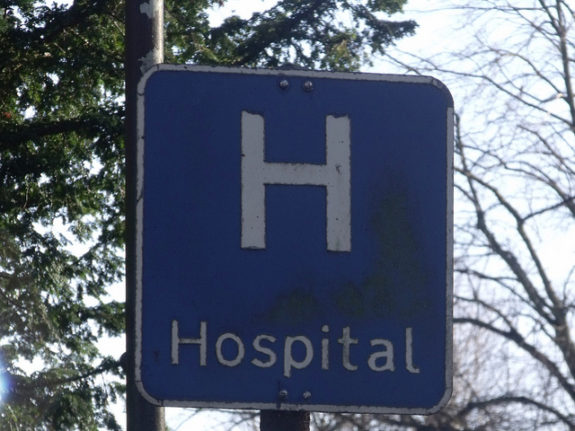
April 3, 2017; WWL-TV and Greater Baton Rouge Business Report
About five years ago, Louisiana began a public-private program with its charity hospital system. The system, which was in financial trouble, was transitioned to a mix of for-profit and nonprofit private hospitals and corporations. A recent impact analysis of Louisiana’s privatization of its public health system has declared the project a resounding success, saving the state $2.7 billion over the four-year period between 2013 and 2016.
The study estimates the financial impact of the privatization. First, it estimates the revenues raised for the state from leases of buildings and equipment to private hospitals and doctors. Then, the author adds in federal matching funds. Finally, the author adds monies provided for capital improvements that the private groups bear, rather than the state.
The study then performs a series of exercises (read: homework problems) to estimate the spillover effects of these monies into the rest of the Louisiana economy. The study estimates an impressive 17,500 jobs added as a result of the state, splitting the new revenues 50/50 between health and education expenditures. Additionally, the study estimates $1.7 billion in additional sales in 2016.
Sign up for our free newsletters
Subscribe to NPQ's newsletters to have our top stories delivered directly to your inbox.
By signing up, you agree to our privacy policy and terms of use, and to receive messages from NPQ and our partners.
Now, these estimates are based on a number of assumptions, some more justifiable than others, but on net, these spillover/multiplier estimates are likely an overstatement. Without getting too far into the weeds, the assumption of an even 50/50 split of 100 percent of the revenues is very optimistic. However, that is not the biggest takeaway of this study.
What should be noted is that Louisiana has found a way to privatize its hospital system, which was one of the few remaining state-run systems in the U.S. With this privatization naturally come a few concerns. Are more people left without healthcare as a result of the privatization? What happens to the cost of healthcare in these formerly state-run institutions? What about the quality of care? Will private hospitals care for their patients in the same way?
Luckily, the public-private hospital ownership question has been among the most studied in the economics field. Unfortunately, the results of these studies have been mixed, although many empirical studies tend to lean toward private hospitals being an improvement in many ways over state-run hospitals, although the degree of competition can affect the quality of care and amount of uncompensated care—i.e., care for patients who cannot pay all or part of their hospital bills. The good news for patients of nonprofits is that nonprofit hospitals may compete over quality of care, leading to high levels of care in areas with competing nonprofit hospitals.
The study aims to measure the “improved care” now available thanks to privatization of the state’s health system. Unfortunately, it is not nearly rigorous enough to draw any solid conclusions about the care now being received by these would-be patients of the state. There is reason to be optimistic, however. It will be interesting to see how the healthcare system evolves and revenues change over time. Four years in is far too early to declare victory, but it is off to a good start.—Sean Watterson











